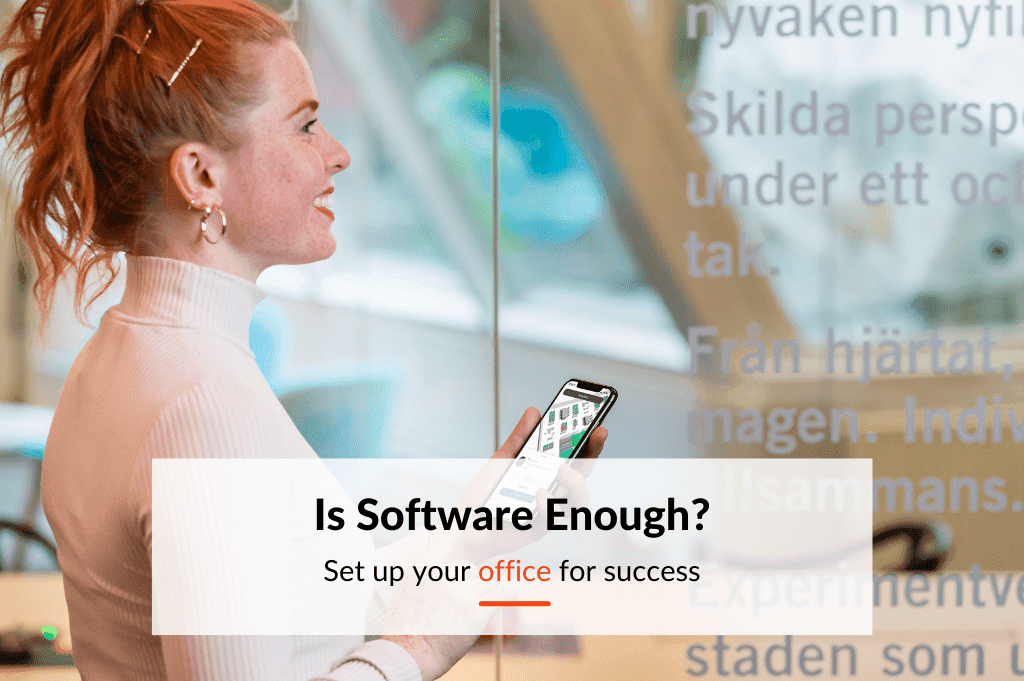The trend is clear, office space is becoming emptier by the day. With the new Flexible working trend on the rise, companies are now looking for solutions that can help them reduce office space, and many smart office providers are promoting resource booking software as a key. But will a software-only solution be enough for comprehensive analysis? Probably not, and here is why.
What are the key benefits of a Smart office?
Booking software is for the employee experience
Using booking statistics to analyze resource usage is the first step to create an overview of the total usage of your office. Booking software can help companies understand where the popular booking areas are and act accordingly. However, resource booking has its most clear benefits when it comes to employee experience and employee security, and this it does well. When considering a hybrid work arrangement, or flexible seating, resource bookings are the most surefire way to guarantee seating for employees at the office, and simultaneously alert others that there are no seats available. It can also help employees find their colleagues, which is one of the most common problems in a flexible working environment.
We are ad-hoc users and ad-hoc bookers
However, even the most passionate smart office enthusiast know that we tend to be more ad-hoc in our mindsets than we might want to admit. Some people might book a seat but decide to stay home, others might have to rush to the office and forgetting to book a seat, and then having to take one on-the-go. In these cases, the analysist has no way of knowing what’s going on, because the booking was never made. The result: The statistics will be an accurate measurement of how much your employees use the software, and not the office.
Accurate data comes from actual usage
How do we make sure that we collect data based on actual usage of our office? Sensor technology, USB Desk Check-in sensors and people counters are the most accurate data gatherers of human behavior. Adding hardware to your office solution can help you be sure of the actual usage of your office. For example, An USB Desk Check-in Sensor can detect if a person who books a desk is actually using it, if a desk is not used upon booking and if someone how did not book uses it. When using this type of hardware solution, you can be sure that all variables needed will be gathered - enabling you to segment all data based on ghost bookings, used bookings and un-booked usage.
A Presence sensor has the same function, the only downside being that the employees name will not be visible on the map, which in turn makes colleague finding trickier. A presence sensors function is in the name, it can detect presence at a desk or in a meeting room and will alert if someone is currently using it. By adding presence as a variable in your analysis, it will be possible to detect usage of hot desks, analyze ghost bookings and usage of un-booked resources.
In summary, even though a software-only solutions has many benefits for your employee experience at large, it will be of minimal use if you want accurate statistics that you can base office changes on. In these cases, hardware like USB Desk sensors or presence sensors are a cheap and time effective way to gain full insights on your office usage.
We at Flowscape provide an end-to-end delivery of hardware and software with an included statistics portal that are uniquely designed for property owners and managers who are interested in reducing, changing, or increasing office space. Feel free to contact our experts for more information.
Read more
Download Our Space Management Brochure!
Flowscape provides a comprehensive solution designed to manage hybrid work schedules.
